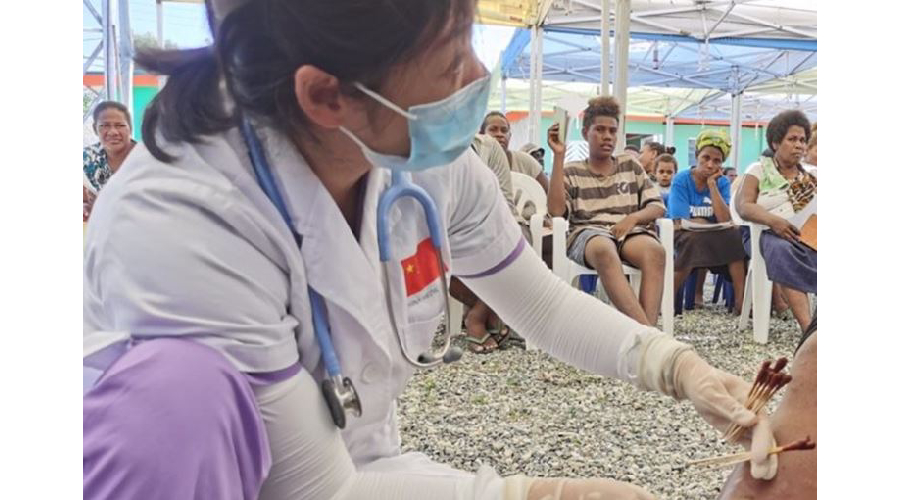29 December 2022
Issues impacting on politics are not factors that influence my thanking the China Medical Team (CMT) members based at the National Referral Hospital (NRH) in Honiara for recently successfully undertaking their fifth community free clinic, this time for community members at Burns Creek and surrounding communities.
The Ambassador of the People’s Republic of China to the Solomon Islands, HE, LI Ming, who reportedly paid a visit to the site said it was wonderful to hear of people appreciating the support rendered by the CMT, their superb medical skills and considerate services.
Teaming up with Burns Creek clinic staff, the CMT assessed and treated around 130 persons who presented with various health complaints.
Consultation and treatment were provided by a General Practitioner (Doctor), a Nephrologist (doctors specializing in kidneys), and a Traditional Chinese Medicine (TCM) Acupuncturist.
I would hazard a guess that a great number of the sick community members seen and given some medical treatment suffered from NCD related issues, including liver disease and diabetes.
I know that in China much work goes into conducting evaluation fieldwork to eliminate, or greatly reduce the impact of NCDs on the population and it would be my hope that the Chinese medical doctors and medical specialist already in the Solomon Islands together with the PRC Government and the SIG/MHMS will combine to work in three ways on the prevention and control of NCDs in the Solomon Islands.
Noncommunicable diseases (NCDs) are the leading cause of death and disability in the Solomons.
Here are my main reasons why prevention and control of NCDs and their risk factors are important for health security at home
A safer population:
Reducing NCDs can also reduce susceptibility to infectious disease outbreaks. For example, uncontrolled diabetes increases the risk and severity of infectious diseases like dengue and malaria, and makes tuberculosis even harder to treat. Tobacco smoking is a risk factor, as is the excessive consumption of alcohol, for all leading NCDs and also increases risk and severity of influenza, tuberculosis, pneumonia, and hospital-acquired infections.
Stronger health systems:
A health delivery system that ordinarily addresses NCDs must be a first line of defense when a communicable disease emergency occurs.
Meeting global goals:
NCD initiatives contribute to international development goals by reducing the economic burden of illness and death and improving overall capacity for emergency response What needs to be done now
To do.
Advance health security goals to prevent, detect, and respond to NCDs and consequently I see the need for-
Prevention: Strengthens primary care capacity and medication supply chains that can support emergency response activities.
Response; Health staff at all levels must recognize and prevent both noncommunicable conditions and emerging threats to health security with active advice of diets, exercise and particularly warning of cigarette smoking and the dangers of high alcohol use, especially warning about the widespread drinking of kwaso, or home brew.
Yours sincerely
Frank Short



